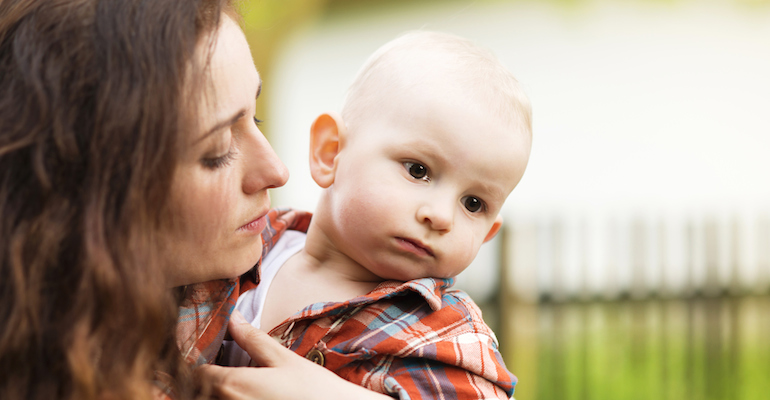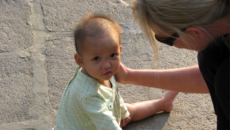If we’re not bonding, where do we go for help?
First, don’t rush. Even in biological parenting, bonding isn’t always instant or automatic. But if time has passed, your child has settled in, and you still don’t feel attached, it’s time to get help. Start with your adoption agency or the social worker who did your home study; they can refer you to psychologists specializing in adoption issues. Also, lean on your support group — especially other adoptive parents.
How do I help siblings bond?
If you have children already, whether adopted or biological, you can help them to bond — beginning long before the adoption itself. Younger children can take part in choosing the baby’s name, deciding where he should sleep, buying a special toy. If your child is older, involve her in the adoption process.
- Get your first child involved. Many agencies hold sibling education sessions. If your agency does not, or if you are adopting through an attorney, involve your child in family discussions.
- Give your child permission to ask tough questions. With the freedom to feel what he/she honestly feels, your child can engage emotionally with the new sibling at the right pace.
- Having granted your child the right to her feelings, don’t be disappointed if they’re negative, especially after the new child arrives. Even a child who eagerly awaited a new brother or sister may be resentful when the reality of the change sinks in. Help your older child express feelings, and work together on solutions.
- Enlist your child in readying the house. Imagining where a crib or new bed will go helps anticipate the changes to come.
- If possible, take your child on the adoption trip. Families that don’t need to travel a long distance might set aside some time at home, without visitors, to give each member a chance to spend time with the new baby.
- Give your child some breathing room. Though siblings are usually encouraged to share, let your child decide which of his things are off-limits. Keep his social life untouched, too; children of all ages need to spend time with their peers without siblings tagging along.
- Expect sibling rivalry, and remind yourself that it is the norm for biological siblings, too. Even if sibling rivalry isn’t an issue, there may be times when the younger child needs or receives more attention, and the older one feels left out. Deputizing your older child as a special helper — having her hold or feed the baby — may let her feel involved rather than ignored.
- Promote togetherness. Look for family activities that all ages can enjoy. Remember that many older siblings love an excuse to revisit early childhood joys, like cartoons, blowing bubbles, and running through the sprinkler.
How do I continue bonding after I go back to work?
Children who have been in orphanages or in multiple foster care placements, with a history of several caregivers, learn to attach quickly to each new adult they meet (it’s a survival mechanism). When you return to work, you may find that your child attaches too easily to a child-care provider. It’s important to reinforce your existing bond, verbally or sensually, throughout the day, despite your absence, and remind the child that your relationship is primary.
- Call home and speak briefly to your child every couple of hours.
- Prepare snacks. Ask the babysitter to say, “Your Mom (or Dad) made this for you,” as she offers the food.
- Tape-record yourself as you cuddle with your child and read a story. When the babysitter plays it, it will evoke the warm memory of being held by you.
- Develop a special hug or bath and bedtime ritual that only you share with your child. Ask the babysitter never to share that same kind of hug or ritual.
- Leave a transitional object, such as a stuffed animal that you both hug at bedtime, with your child.
Can adoptive parents get the “baby blues”?
Adoptive parents, accustomed to thinking of post-partum depression as a matter of hormones, are unprepared for the reality of Post Adoption Depression (PAD). The fact is that some post-partum depression results from exhaustion — both physical and emotional — and is just as likely to strike a parent who has just adopted as it is to strike a parent who has just given birth. In rare cases, it can trigger full-blown clinical depression, which should be treated by a doctor or psychologist. If you have most of these symptoms, it might be depression, not just exhaustion. Get help.
- Loss of interest in being around other people
- Always on the verge of tears
- General fatigue or loss of energy
- Difficulty sleeping or an increased need for sleep
- Significant weight gain or loss
- Excessive or inappropriate guilt
- Feelings of worthlessness or powerlessness
- Loss of enjoyment in life
- Irritability
- Recurring thoughts about death or suicide



